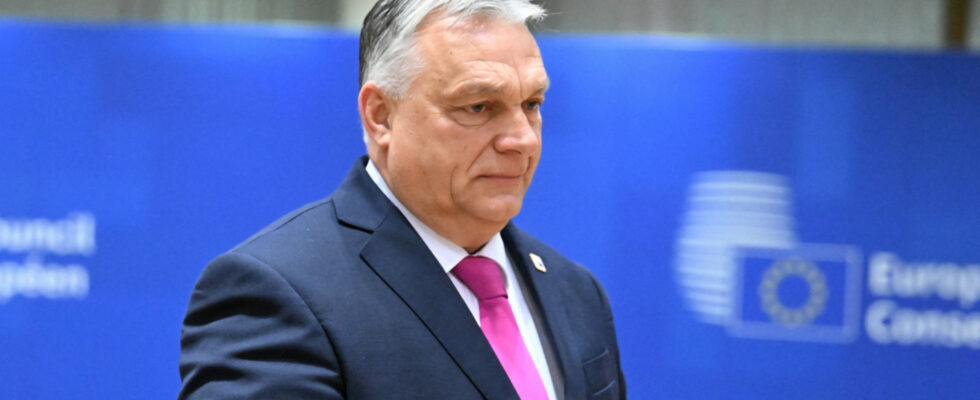The leaders of the European Union failed during the night from Thursday to Friday to convince Hungary to lift its veto on new aid of 50 billion euros for Ukraine, after having managed earlier to open accession negotiations with this country at war. “Summary of the night: veto for additional funds for Ukraine” as for the proposed revision of the European budget, indicated Hungarian Prime Minister Viktor Orban on X (ex-Twitter).
Summary of the nightshift:
veto for the extra money to Ukraine,
veto for the MFF review.
We will come back to the issue next year in the #EUCO after proper preparation.— Orbán Viktor (@PM_ViktorOrban) December 15, 2023
New discussions in January
The 26 other EU countries, meeting with Hungary at a summit in Brussels, had to bow to the obstinacy of the Hungarian nationalist leader. “We will return to the subject at the beginning of January” during a new summit, said the President of the European Council Charles Michel in the middle of the night. “There are 26 countries that have given the green light. There is no agreement with Hungary at the moment, but I am confident that we will achieve it next year,” added Dutch Prime Minister Mark. Rutte.
The EU had planned to provide Ukraine with aid of 50 billion euros, 33 billion in loans and 17 billion euros in grants, over four years starting next year. This new aid is considered crucial in kyiv at a time when American aid of more than 60 billion dollars remains blocked in Congress due to reluctance among Republican elected officials.
Not in the room
However, European leaders had managed a few hours earlier to agree on the opening of accession negotiations with Ukraine. Viktor Orban had this time agreed to abstain, so as not to have to endorse a decision that he has continued to judge to be disastrous for the future of the EU. The Hungarian leader “was not in the room when the text was adopted, it was agreed with him”, explained to AFP a European diplomat who requested anonymity. “It is a pragmatic solution (…) The political signal has been given,” he continued.
In a video posted on Facebook, Viktor Orban then explained that his country did not want to “share responsibility” for this “senseless” choice of the 26 other states and therefore “abstained”. “It is a victory for Ukraine, for all of Europe, a victory which motivates, inspires and makes us stronger”, launched Ukrainian President Volodymyr Zelensky, while the White House welcomed a “historic decision” .
Although the process will be long, the symbolism is strong for this country at war since February 24, 2022, the date of the start of the Russian invasion. For Charles Michel, this decision to open negotiations with Ukraine, but also with Moldova, is “a clear signal of hope for the citizens of these countries and for our continent”. German Chancellor Olaf Scholz welcomed “a strong sign of support” for Ukraine which offers “a perspective” to this country. French President Emmanuel Macron spoke of a “logical, just and necessary response” to the aspirations of his people.
Signal of encouragement
A few hours earlier, Viktor Orban had nevertheless hammered home his refusal to accept this step. “There is no reason to discuss anything, because the conditions have not been met,” he said combatively at the start of the summit. Volodymyr Zelensky was waiting, like millions of Ukrainians, for a signal of encouragement from Europeans, at a time when negative signals from Washington are multiplying.
For weeks, clouds have been gathering over Ukraine: its military counter-offensive has not produced a decisive breakthrough and Western aid, essential to the war effort, has been blocked. At the very moment when the crucial summit in Brussels began, Vladimir Putin, by contrast, displayed his confidence in a victory for Moscow. “Practically along the entire length of the contact line, our armed forces are improving their positions,” the Russian president said.
